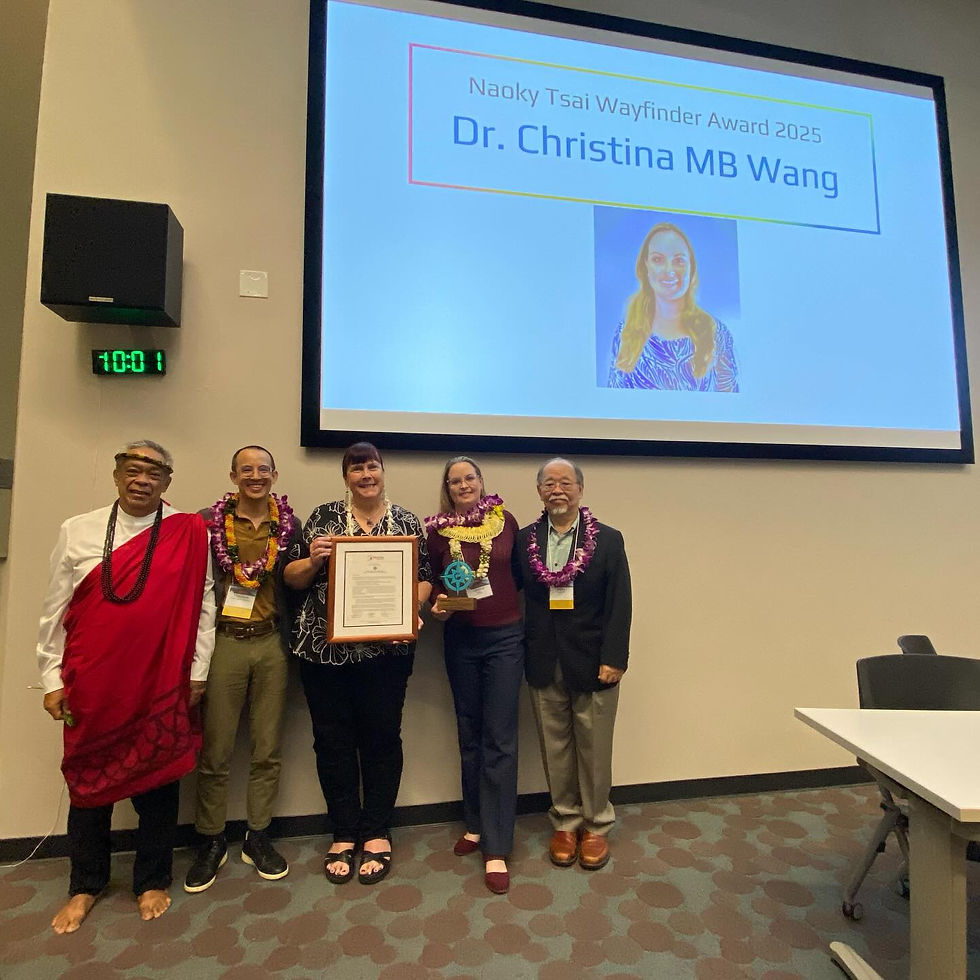Summer Reading Recommendations
- HHHRC
- Jun 1, 2023
- 3 min read

HHHRC Executive Director Heather Lusk was featured in a Honolulu Civil Beat article on the forthcoming decriminalization of fentanyl test strips, with Hawaiʻi joining 36 states and the District of Columbia in exempting it from its drug paraphernalia statute. Notably, Alaska has no drug paraphernalia statute. Lusk recently attended a summit convened by the Hawaiʻi Island Fentanyl Task Force.
The article also noted that $200,000 in grant funding from the federal Centers for Disease Control and Prevention would allow the purchase and operation of 20 vending machines in select locations across the state, including prisons, that will provide naloxone and fentanyl test strips to the public at no cost.
Grants & Advancement Manager Nikos Leverenz also authored a recent opinion-editorial in Honolulu Civil Beat, “Make Government Reform a Long-Term Commitment,” that assesses the Hawaiʻi legislature’s policy responses to the recommendations of the Speaker’s Commission to Improve Standards of Conduct (CISC), formed in the wake of the indictment of two state lawmakers early last year. Leverenz served on the CISC as an Advisory Board Member with Common Cause of Hawaiʻi.
Leverenz was also quoted in a Honolulu Civil Beat article on the use of force by the Honolulu Police Department (HPD) in responding to those experiencing an acute mental health episode. Researchers at the University of Hawaiʻi at Mānoa recently released a report on HPD’s use of force, which, among other findings, noted a significant increase in the number of mental health incidents where there is a use of force. The report also found that more than two-thirds of all deadly force was used in situations where subjects put up no resistance.
HHHRC currently provides crisis intervention training to first responders that includes de-escalation skills. Several cities on the continent, including Eugene, Oregon, and Denver, Colorado, have established programs that provide a public health response to those experiencing a mental health crisis, diminishing the risks of injury and death. Denver’s CAHOOTS program is the subject of a feature article in Psychiatric Times.
Prosecutors can also play a key role in removing those with mental illness from the criminal legal system. Among the recommendations of Fair & Just Prosecution’s report, “Improving Justice System Responses to Individuals with Mental Illness,” is for prosecutors to encourage the use of public health models as a starting point for developing responses to persons in crisis and eliminate the use of jail as a response to mental illness.
Northwestern University physician and professor Eric Reinhart authored an essay in Time Magazine in early May that advocates for the national implementation of community health worker programs to “reorient U.S. safety systems around care rather than punishment.”
Reinhart calls for a substantial commitment to the nation’s public health infrastructure to more humanely and effectively respond to poverty, addiction, disability, mental illness, and homelessness: “The scale of harm that mass incarceration inflicts on public health and the cost it imposes on the floundering U.S. healthcare infrastructure is massive. And for all this, safety in our communities is no better than in peer nations. In fact, it’s considerably worse. The U.S. suffers far higher rates of violent crime, fatal overdose, and mortality... Public health and public safety are not, as has been conventionally imagined, separate policy domains. We cannot build one while undermining the other. And to achieve either, we need to embrace a public health approach to safety.”
The essay is an outgrowth of an article Reinhart published earlier this year in The New England Journal of Medicine, “Reconstructive Justice—Public Health Policy to End Mass Incarceration.”










Comments